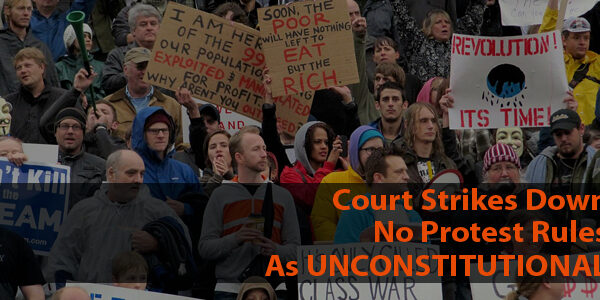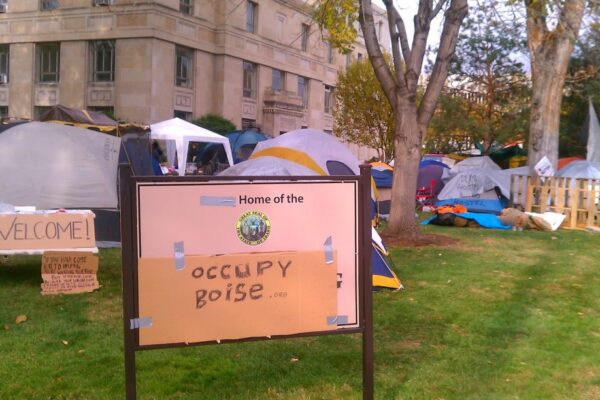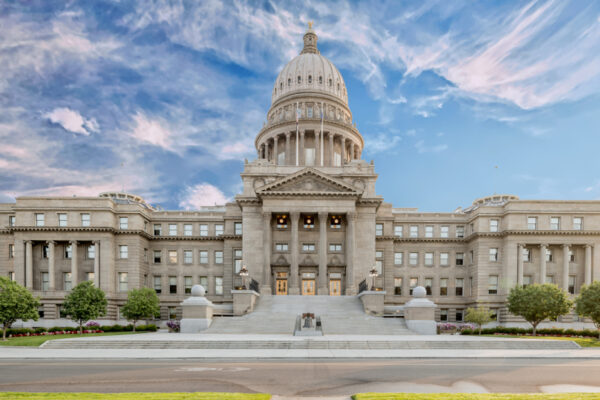Federal court strikes down most restrictive provisions as unconstitutional
Boise, ID—On Friday, November 1, 2013, U.S. District Judge B. Lynn Winmill handed down its decision in the Occupy Boise lawsuit against the State of Idaho’s rules restricting protest near the Capitol building in Boise, ruling key sections to be unconstitutional. This is a major victory for Occupy Boise and the American Civil Liberties Union of Idaho (ACLU) who challenged the state.
“This is a tremendous win for free speech and protesters’ rights in Idaho,” said Richard Eppink, Legal Director of the ACLU of Idaho. “Thank goodness there were courageous patriots like Occupy Boise willing to stand up for freedom and make sure these onerous provisions were struck down by the courts.”
The court’s decision declared the seven-day duration limit as unconstitutional, stating that there is no justification for setting a limit on how long any group can protest. “A group could occupy state property indefinitely until another group seeks to occupy the same area,” Judge B. Lynn Winmill wrote in the decision. The decision points out that “the rules expressly allow security personnel and law enforcement to separate groups who are simultaneously assembling in the same location.”
This ruling is believed to be the first in the country to decide whether the government can limit the length of time a single group can maintain a continuous protest. The seven-day limit would prevent groups like those involved in the Occupy movement from maintaining a ‘round-the-clock protest for weeks or months at a time. Bryan Walker, one of Occupy Boise’s attorneys, said that “it’s hard to reason with government. Even when you tell them plainly that their actions are infringing on constitutional rights, they will use the machinery of the state to crush dissent, even at great cost to the taxpayers. This decision vindicates our warnings to the State of Idaho.”
The Court also struck down a rule that allowed the State to choose to sponsor certain events, which would then become exempt from any rules. The court’s decision noted that such a rule would elevate “state sponsored speech over other types of speech.” The court also said that rules allowing the state to impose fees and cost to protestors were unconstitutional, as it would grant the “Department too much discretion in imposing costs on permit holders.”
“We definitely got the most important things struck down and on the rest of it the state has been advised to tread lightly” said Ed Watters, lead plaintiff in the lawsuit.
The court left intact the rules that ban chalking, staking on the ground and grounds maintenance. The decision warns the State, however, that the court could decide that these rules could also be unconstitutional if unfairly enforced. Discussing the rule against using ground stakes, Judge Winmill notes that “if this were an-applied challenge, the Court may reach a different conclusion.” The Court also expressed concerns about grounds maintenance, writing that “the Court worries that by prioritizing the grounds maintenance schedule over First Amendment activity, the rules could inhibit the timely exercise of the First Amendment rights and, in effect prohibit spontaneous political speech.”
Occupy Boise’s victory reinforces core constitutional protections against government. As the court wrote in its decision, “the First Amendment in this country protects the voice of the people, even against the government.”
Read the decision in




